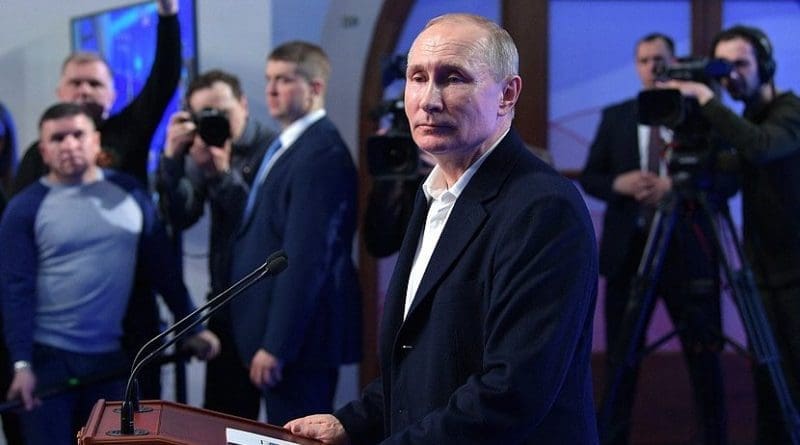Will Raising Retirement Age Weaken Putin? – OpEd
By Paul Goble
Moscow’s decision to radically raise the retirement age has sparked nearly universal opposition among Russians, with some even suggesting that the Kremlin’s “ideal Russian” appears to be someone who works until he is 65 and then drops dead before he can collect a pension (babr24.com/msk/?IDE=177652).
But more importantly, this reaction has prompted commentators to ask whether this new effort by the regime will undermine the power of the Kremlin by calling attention to its failure to keep its past promises, by angering its key support groups, or by prompting them to shift their political allegiances to groups who promise to reverse the pension decision.
On the one hand, of course, Putin and his authoritarian regime are not directly dependent on the population. He has the tools needed to remain in power even if popular support for him falls precipitously. And he knows that he can change public opinion especially if he has as much time before the next elections as he does. Hence the reason for unpopular moves now.
But on the other hand, if Putin and his minions are seen to be losing the backing of the Russian people, some within his elite may increasingly view him not only as a liability who threatens their own interests and survival but as someone whom they can challenge, especially now that his preferred “successor,” Dmitry Medvedev has thoroughly discredited himself.
The most immediate threat to Putin is that ever more Russians are paying attention to the fact that in this case as in others the Kremlin leader has not kept his promises, that he has said one thing and done another to win support only to sell out those who backed him, an inevitably corrosive development (politsovet.ru/59282-eto-nevozmozhno-chto-putin-govoril-o-pensionnom-vozraste-v-raznye-gody.html).
That has led some commentators to suggest that raising the pension age has already weakened the Russian powers that be. Yekaterinburg’s Politsoviet portal points out that “raising the pension age is possibly the most serious and unpopular social reform in Russia in recent years” (politsovet.ru/59286-oslabit-li-povyshenie-pensionnogo-vozrasta-pozicii-vlasti.html).
It surveyed various political analysts and politicians, most of whom said that the reform will undermine Medvedev but probably won’t touch Putin and that it will have little impact on regional or local elections despite the fact that opposition parties will try to try United Russia, which backs the government’s reform, to it.
But if there is little chance that the reform will spark an immediate political crisis, some commentators are saying that it will affect the 2024 election: Then, Russians may choose to vote for an opposition candidate who says he will reverse the boost in the retirement age (svpressa.ru/society/article/202772/).
At the very least, the anger the pension reform plan has provoked, they suggest, will make Medvedev an unviable candidate, thus limiting but not preventing the further extension of Putin’s time in power.

